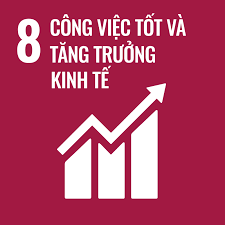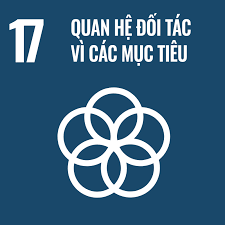UEH School of Law Seminar: Protecting personal information in the digital transformation era from a legal perspective
Many users believe that the freedom of social networks is limitless and have yet to see their rights and obligations when joining social networks. The damage from free speech on social networks today is no longer as minor as dust on the keyboard but has become prominent and caused many impacts on users' psychology.
It can be seen that, at the moment, the user's personal information being disclosed, stolen, or leaked is highly public and popular. It is possible to find out information about anyone's sex, date of birth, ID number, photo, or workplace on the internet. With each transaction on e-commerce sites, users also reveal to the website owner personal information. We show your trends or interests with a click of the like button, share, and comment buttons on social networking sites. The 'tech giants' with an abundance of data infrastructure, powerful supercomputers, and intelligent algorithms have always followed us. Or, to put it in the movie The Social Dilemma: “Everything that we are doing on the online web is followed. Every action you perform is carefully observed and recorded”. Or like Dr. Marion Fourcade said, with a bunch of cookies embedded in artificial intelligence technology and websites, as well as clicking the box to agree to the terms and conditions on social networking sites, we have 'contracted with the devil.’
How has the law of the world prepared for these situations? In Europe, lawmakers have drafted the General Data Protection Regulation (GDPR) with many fundamental principles. This Regulation has been applied to all companies analyzing the personal data of all EU citizens. In which the consensus principle is noted. Accordingly, any personal information extracted from the user and their processing must be informed and consented to. For example, a pre-checked box: "I agree," does not represent the above rule. In addition, information storage systems and websites must be built on the principle of privacy-first, aligning it with the design of the platforms and setting it as privacy by design and privacy by default). With such progress points, GDPR has been transplanted into the laws of other countries such as Korea, Brazil, etc.
In Vietnam, we have gradually recognized and strengthened regulations on the right to personal data protection in the digital space. With a series of legal provisions in the Civil Code, the Law on Cyber Information Security, and most recently, the Draft Decree on personal data protection being drafted and soon to be issued, the provisions of the law of Vietnam have approached the world in this area. Some notable points can be mentioned, such as: providing primary personal data classification and sensitive personal data, establishing principles in the process of personal processing data, gender In the case of processing personal data without the data subject's consent, or specifying the level of administrative penalties for violations of the regulations on personal data processing.
In that context, on April 16, 2021, at Hall A.103, the School of Law - UEH organized a seminar for UEH students with the topic “Are you safe? - Personal information security in the digital transformation era" to share how to protect personal information from a legal perspective and how to keep yourself safe on the internet environment.
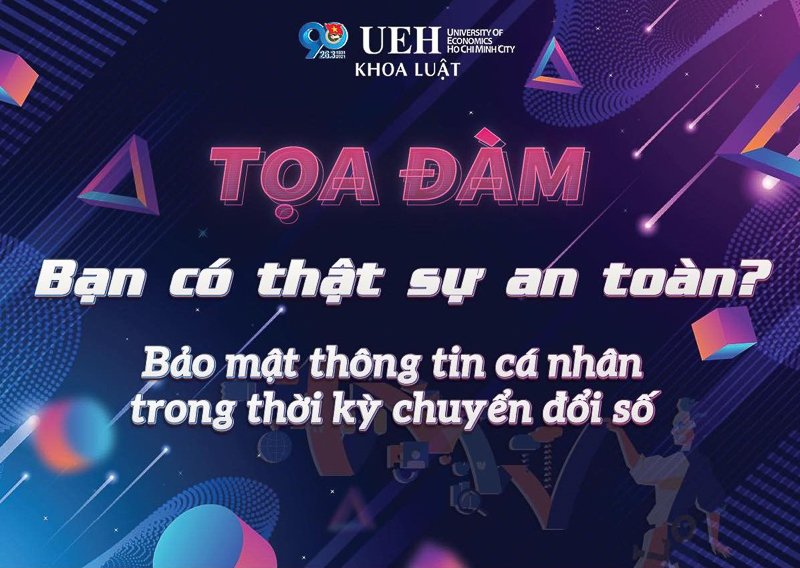
The seminar was attended by Ladies and Gentlemen who are Lecturers of the School of Law - UEH: Mr. Le Hung Long, Mr. Mai Nguyen Dung, Ms. Le Thuy Khanh, Mr. Huynh Thien Tu, and Ms. Nguyen Ngoc Tram Anh and a large number of students.
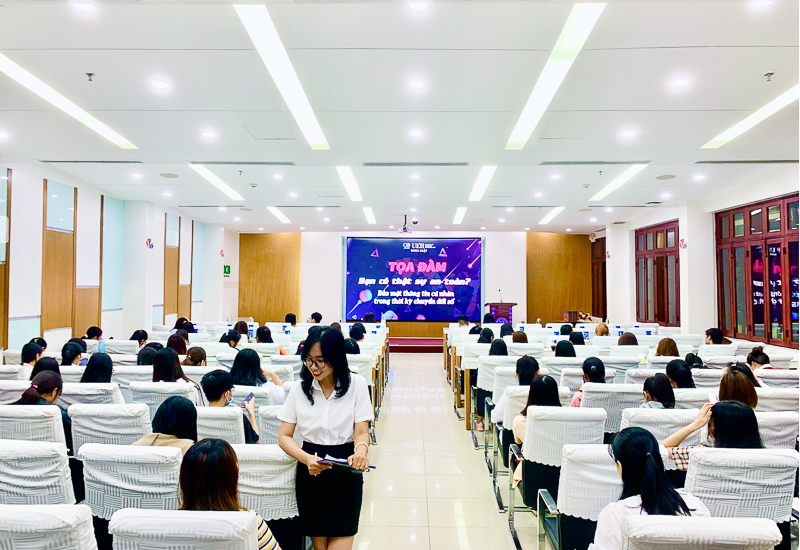
Overview of the Seminar
The seminar focused on critical issues related to the protection of personal information in the digital transformation era, revolving around: The confidentiality of user information when using social networks; conflict between individual privacy and freedom of expression in digital spaces; the right to protect personal data in the digital area and illegal purchase and sale of personal information.
Mr. Mai Nguyen Dung gave a multi-dimensional perspective on the positivity and negativity of confidentiality and risk management solutions in the situation of personal information theft. Ms. Le Thuy Khanh helped the students better understand freedom of speech in social networks and learn for themselves what to do and how to do when facing online conflicts on social networks.
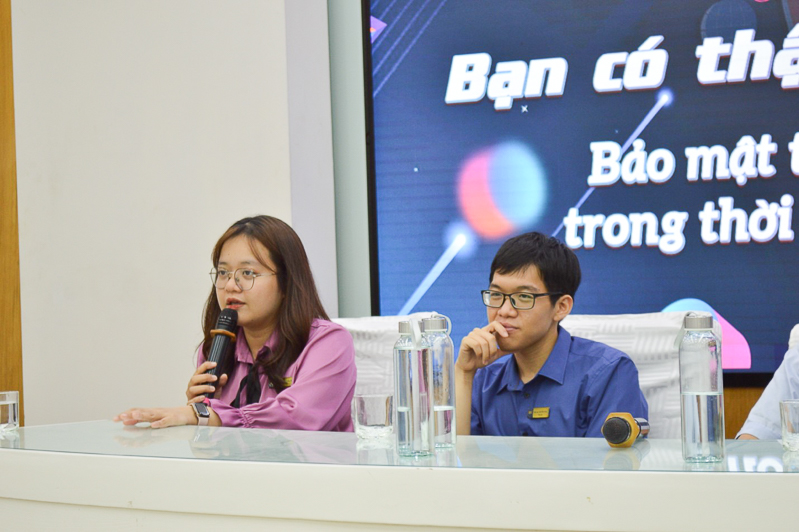
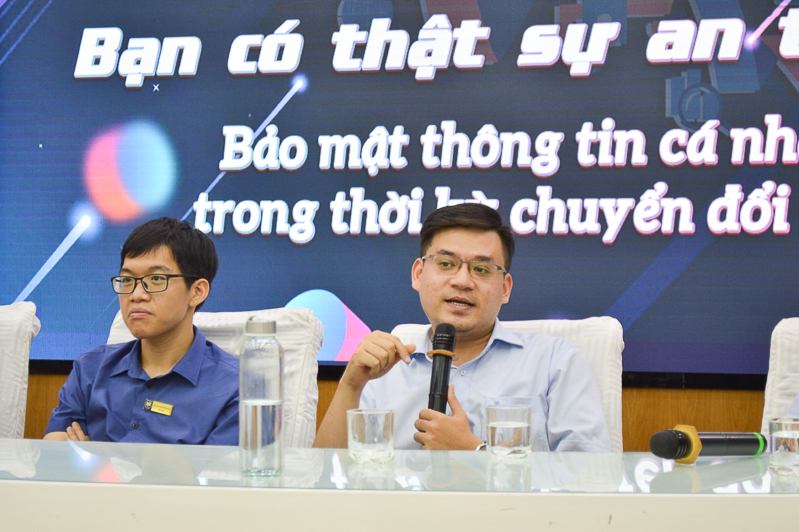
The teachers discussed with the students at the roundtable exchange.
The speakers and students had an exciting and interesting discussion. Many questions from the participating students are dissected and analyzed from the perspective of the law of the teachers from School of Law, at the same time, prominent social issues such as cybersecurity, housing management, citizenship identification with chips, online disparaging culture, smearing on social network are also exchanged to draw out the necessary behaviors of the young generation in the digital environment.
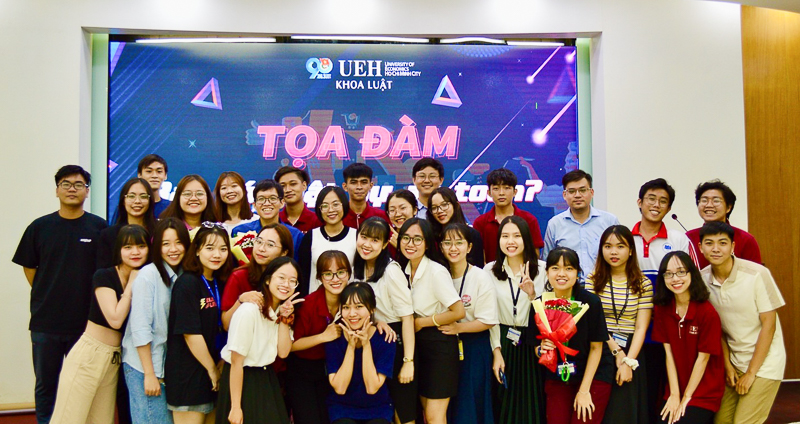
The seminar ended in an exciting atmosphere, bringing the students valuable and practical information to protect themselves in the era of digital technology and social networking development.
News, photo: School of Law, Department of Marketing and Communication, Scientific Management - International Cooperation Department.
